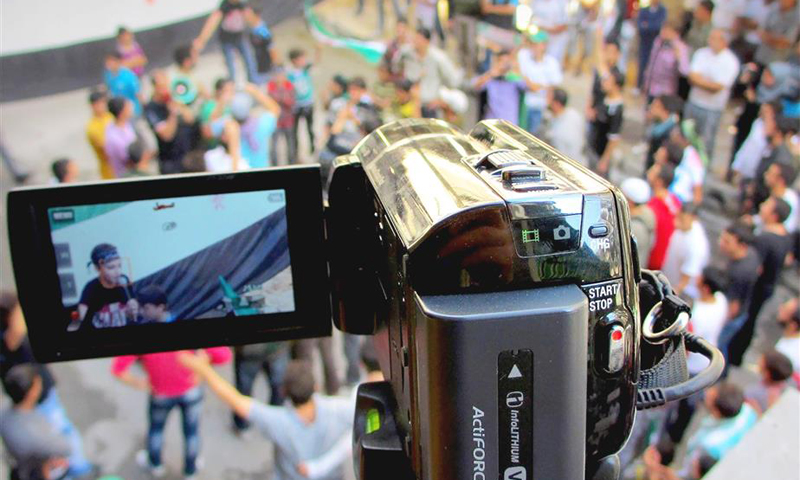Although there is some dispute around when the term “citizen journalist” or “citizen journalism” first appeared, many professors of media agree that the real appearance of the citizen journalist followed the tsunami in December 2004, when media reports on the cyclone drew in normal citizens who were in the area.
This occurred again in the Arab world when the dictatorships of the Arab Spring prohibited media and journalistic institutions from operating. The offices of Al Jazeera and Al Arabiya were closed and their correspondents arrested, thereby pushing these channels to rely on citizens in the areas where the events were occurring.
The citizen journalism began in Tunisia and then Egypt, Libya and Yemen, but it was clearest in Syria, because of how events developed and extended over a long period, as well as the serious harassment of journalists. This pushed channels, which were banned by the Assad regime, to develop the idea of citizen journalism until it later became the citizen correspondent, through the reliance upon citizens who were hired and trained from afar to become correspondents for the areas, which fell outside regime control.
After the involvement of various organizations, including those concerned with reporting the Syrian revolution, citizen journalism began to develop into a profession, which pushed most of them to establish media offices inside Syria and journalistic institutions abroad, depending on the funding provided to them by various countries and organizations. This is where the crisis of Syrian opposition media began.
The proliferation of sources and the varying details of news from one activist to another and from one institution to another made the task of major media organizations extremely difficult. They had to spend more time on screening and filtering the news — especially since the presentation of the news varied according to the affiliation of each activist or revolutionary media institution. This was not important for most of the backer countries and organizations, as America and Britain and some European Union countries aimed to create media arms that would work according to a policy they would draw up later, by giving revolutionary institutions support and then controlling their political line.
Syrian media institutions began to be slowly dragged toward the policy of their backer, with some of them solely confronting the Islamic State, and others becoming interested in women’s issues, refugee issues, and others changing their editorial policy under the pretext of professionalism, which pushed them to stay away from their basic target which was the Assad regime. The regime became known as the “Syrian government” and Bashar al-Assad as “the Syrian president,” while Assad’s victims were “killed.” Afterwards a journey began to ease the frustration of the reader through the use of these terms — and this is what stopped the funding, or at least led to a reduction from institutions which rejected this or which maintained their editorial line opposed to the regime and its bloodthirsty machine.
The political money which some opposition figures and institutions have monopolized has not been isolated from the crimes against the opposition media. Part of this money has been spent to create warlords and policy. Jarba bought an important news website whose funding was stopped, and Sabbagh founded a site as well. The most important channel that had stood alongside the revolution has begun to revolve around the mentality of the king, while two opposition members, one of them in the National Coalition, founded a channel with a Brotherhood flavor, mixed with some Salafi jihadism.
After the forcible displacements imposed by the regime on opposition areas, and the Islamic State group imposing other extremist views, media activists found themselves faced with the difficulty of making a living, which has pushed them to work in institutions where, even if they are not forced to work, they are certainly not allowed to work as they would like.
Here activists who were expelled from their regions to countries of refuge have recently entered into a conflict between their basic concerns and accepting the policy of the “teacher” who has taken advantage of their presence outside Syria and their contact with backing institutions or the countries involved in Syria to become a tool which recently was termed the “media shop” subject to the backer’s agenda.
This article was translated and edited by The Syrian Observer. Responsibility for the information and views set out in this article lies entirely with the author.


